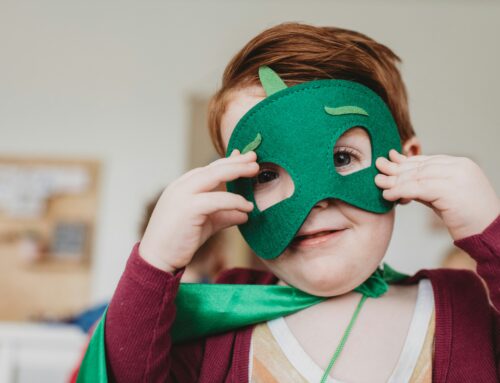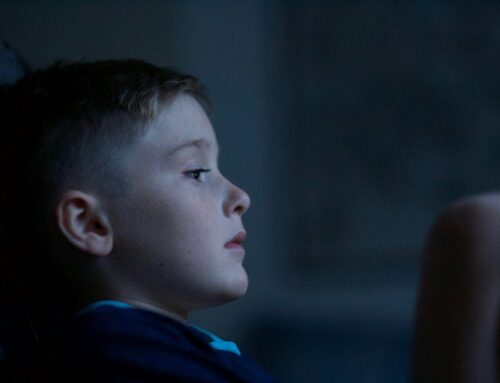Around 1 in 200 children and teenagers in the U.S are said to have obsessive-compulsive disorder. (1) For adults, that number is 1 in 100.(2) Despite the fact that OCD is relatively common, there are still many misconceptions about the disorder. Far from being a quirk or a personality trait, obsessive-compulsive disorder is a serious mental health condition that is often debilitating. It is also common to have obsessive-compulsive disorder alongside other conditions, including depression, eating disorders, social anxiety, panic disorder, tic disorder, and ADHD.(3)
People who have OCD can benefit from rapid diagnosis and treatment. As each person with OCD has different needs, there are a variety of therapies available to help people with OCD improve their symptoms.
Obsessions and Compulsions in OCD
People with OCD can experience the condition in different ways. For some people, their experience of OCD is with intrusive thoughts that don’t involve compulsions. Other people experience certain obsessions that lead them to perform specific rituals, or compulsions, to ease their anxieties. For instance, a person with obsessive-compulsive disorder might suddenly worry that a loved one will die in a car crash. They might then believe that tapping the table next to them a certain number of times, or flipping the light switch on and off, will prevent the feared event from occurring. This kind of magical thinking is a familiar form of OCD.
As shared by the International OCD Foundation, some of the most common obsessions in OCD include contamination fears (such as the fear of germs), fear of losing control, fear of causing harm, unwanted sexual thoughts, an obsessive need for perfection, religious obsessions, health anxiety, and superstitions. (5) Compulsions, meanwhile, are far-ranging and can include counting, checking, cleaning, repeating, and performing certain mental tasks, such as replaying events to ensure that nothing bad occurred. (5)
Cognitive-Behavioral Therapy
CBT is usually considered to be the main therapy for obsessive-compulsive disorder. Cognitive-behavioral therapy is also a common treatment for many other mental health conditions. This therapy works by helping people to change their thinking patterns and behaviors.
For OCD, a certain type of cognitive-behavioral therapy known as exposure and response prevention is usually provided. ERP gradually exposes people with OCD to the situations that trigger their compulsions, with the goal of slowly working to avoid responding to the situation with the compulsion. (4)
For people who are nervous about jumping right into exposure and response prevention, imaginal exposure is another option. With imaginal exposure, a therapist uses visualization exercises to help the person confront their triggers and anxieties. They can then reduce their discomfort enough to move onto the real life scenarios in ERP. (4)
Medication Therapy
Medication can be an effective treatment for people with obsessive-compulsive disorder. A group of medications known as SRIs, as well as the newer class of SSRIs, are currently considered to be the most commonly suggested medications for OCD. (6) Your psychiatrist or doctor can help determine which medication is best for you or your child. You should also ask your physician about the possible side effects associated with these medicines.
These medications can take several weeks to reach their maximum level of effectiveness, and cannot be abruptly stopped. Call your doctor for instructions on weaning off of an OCD medication. For children and teenagers, in particular, it’s important to be aware that these medications have sometimes been associated with suicidal thoughts. Parents should monitor their children for this potential side effect. (7)
There is much promising research being done to generate new treatments and medications for obsessive-compulsive disorder, including research into over-the-counter remedies, like N-acetylcysteine.(8) This is especially important for people who don’t respond well to CBT or the current medications.
Your mental health professional can help you stay up-to-date on the latest research.
Services at NeuroBehavioral Associates
NeuroBehavioral Associates provides comprehensive neuropsychological assessments to evaluate children, teenagers, and adults with known or suspected neurodevelopmental, learning, or attention disorders. We also offer forensic services, treatment services, resources, and referrals.
NeuroBehavioral Associates has remained open during the COVID-19 pandemic. Our practice maintains a low-contact testing strategy that includes the maintenance of social distancing, as well as certain telehealth tools to complement our in-office visits. Contact us today at 410-772-7155 to schedule an appointment or to learn more about our services.
References:
- American Academy of Child and Adolescent Psychiatry. (2018, October). Obsessive-Compulsive Disorder In Children And Adolescents. https://www.aacap.org/AACAP/Families_and_Youth/Facts_for_Families/FFF-Guide/Obsessive-Compulsive-Disorder-In-Children-And-Adolescents-060.aspx
- International OCD Foundation. (2019, February 8). Who Gets OCD? https://iocdf.org/about-ocd/who-gets/
- Oudheusden, L. J. B. (2020, July 1). Classification of comorbidity in obsessive-compulsive disorder: A latent class analysis. Wiley Online Library. https://onlinelibrary.wiley.com/doi/full/10.1002/brb3.1641
- Treatments for OCD | Anxiety and Depression Association of America, ADAA. (n.d.). Anxiety and Depression Association of America. Retrieved April 29, 2021, from https://adaa.org/understanding-anxiety/obsessive-compulsive-disorder-ocd/treatments-for-ocd
- International OCD Foundation. (2021, February 11). What is OCD? https://iocdf.org/about-ocd/
- Medications Approved for Treatment of OCD. (2018, March 29). Beyond OCD. https://beyondocd.org/ocd-facts/approved-medications
- Suicide and Antidepressants: What Current Evidence Indicates. (2012). PubMed Central (PMC). https://www.ncbi.nlm.nih.gov/pmc/articles/PMC3353604/
International OCD Foundation. (2017, December 28). Towards New Medications for Refractory OCD. https://iocdf.org/expert-opinions/towards-new-medications-for-refractory-ocd/





